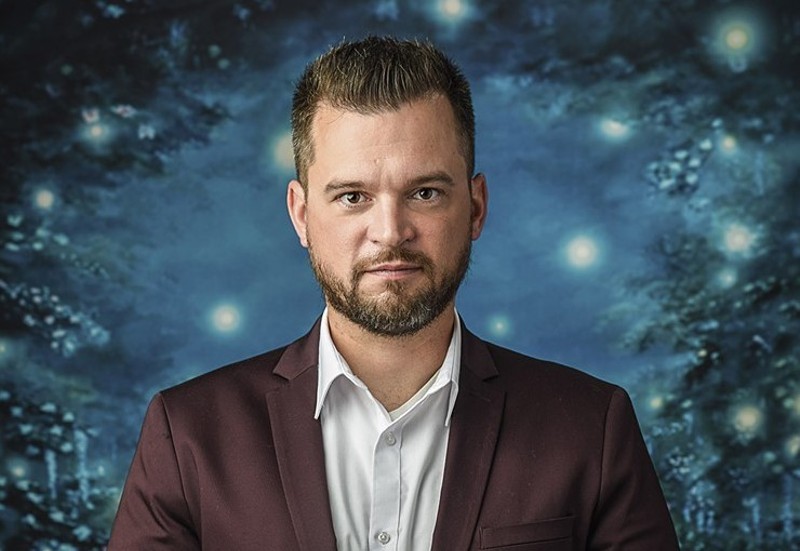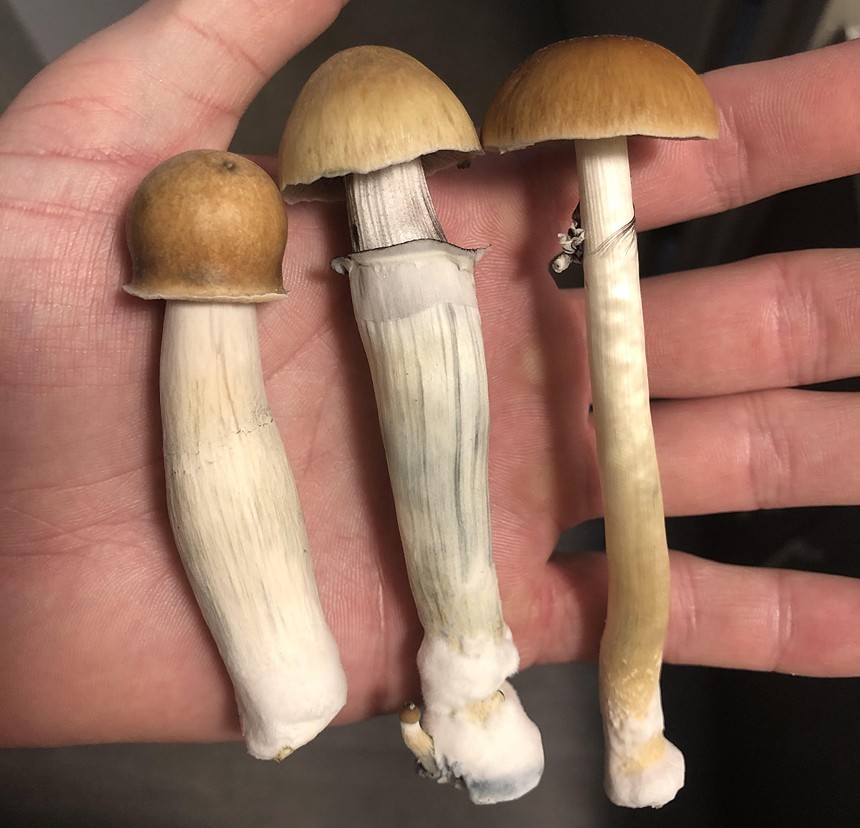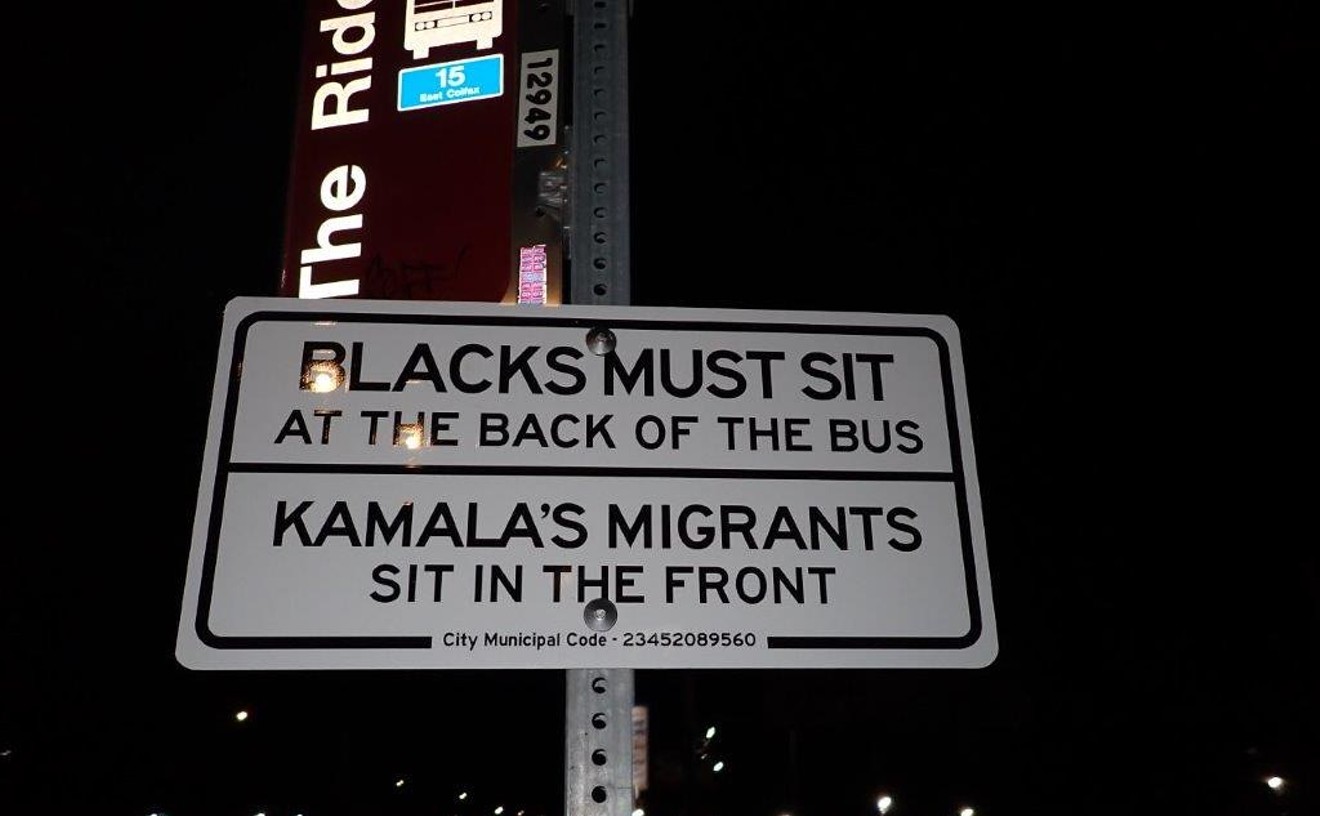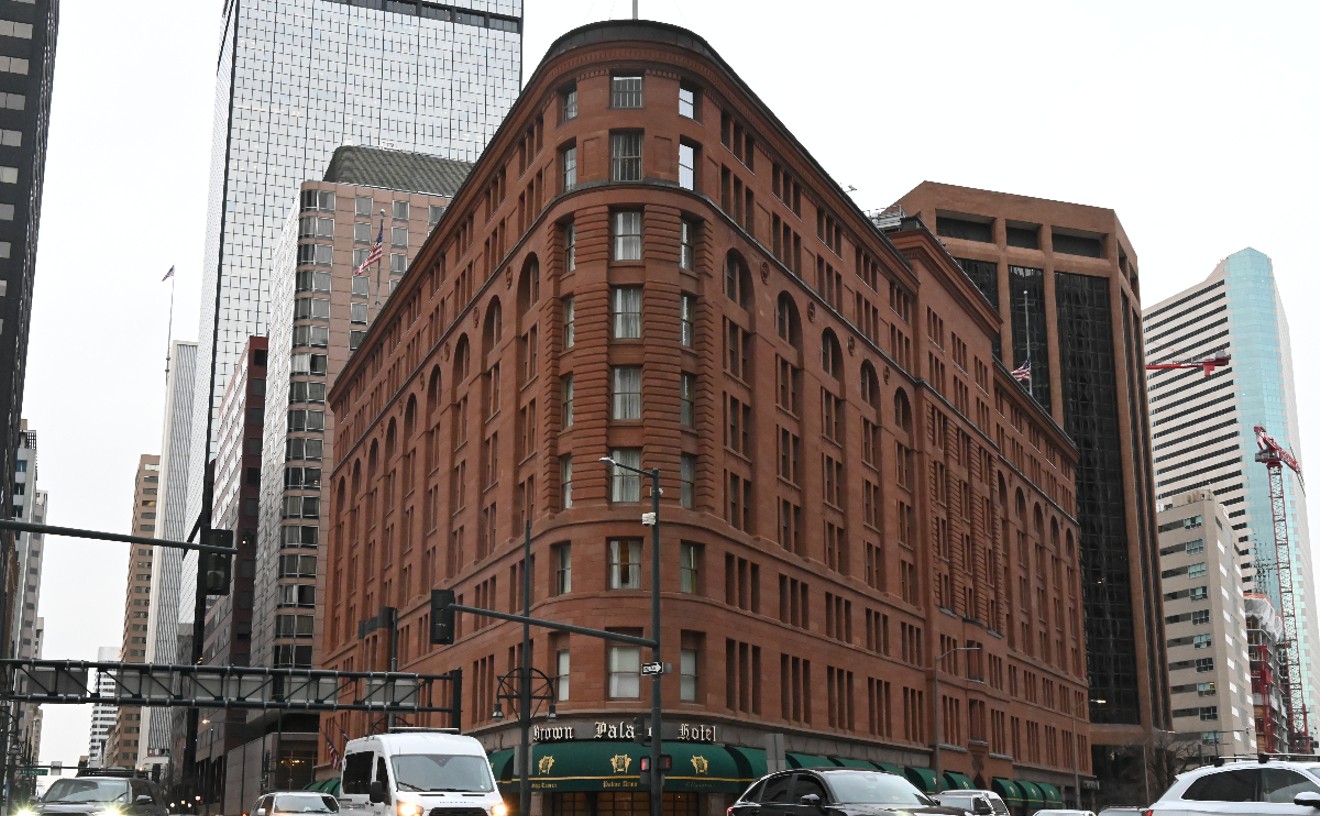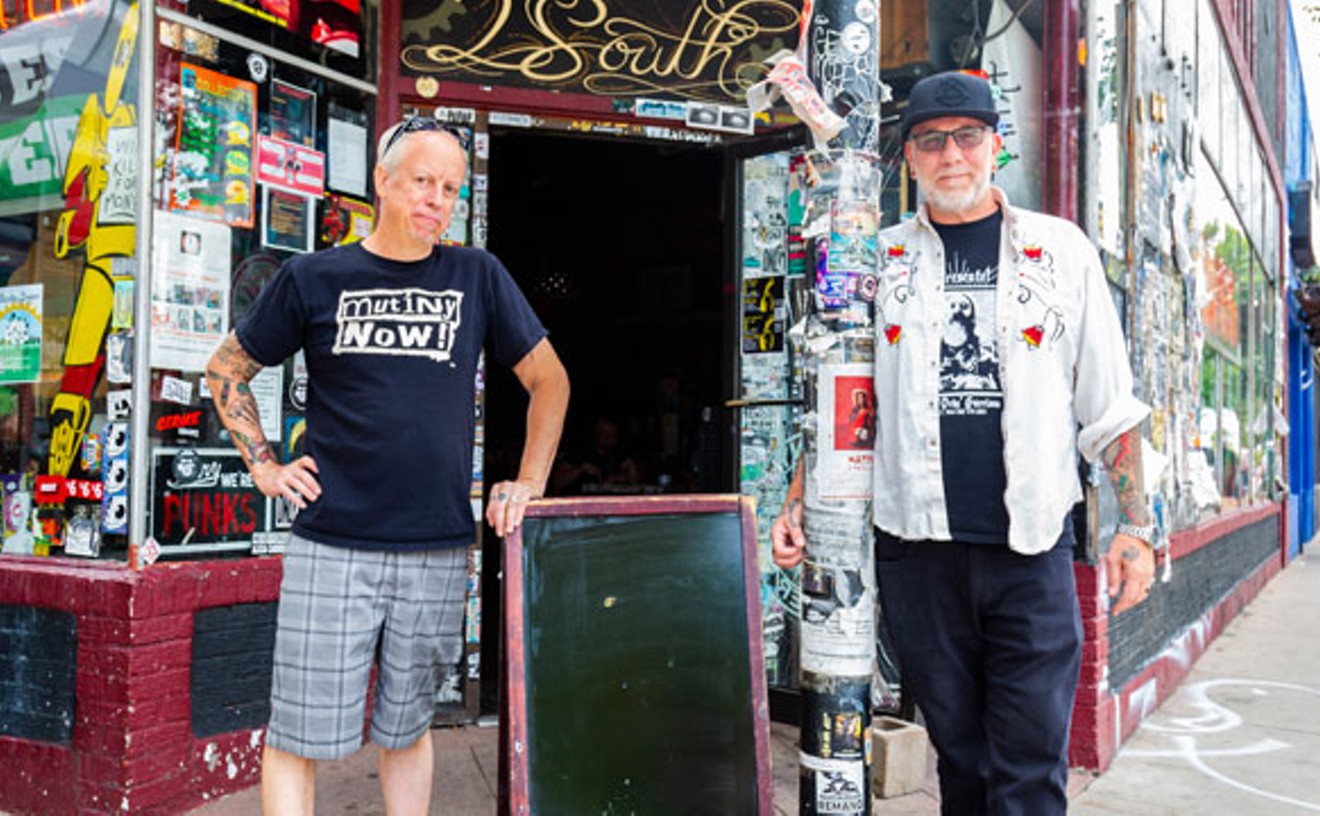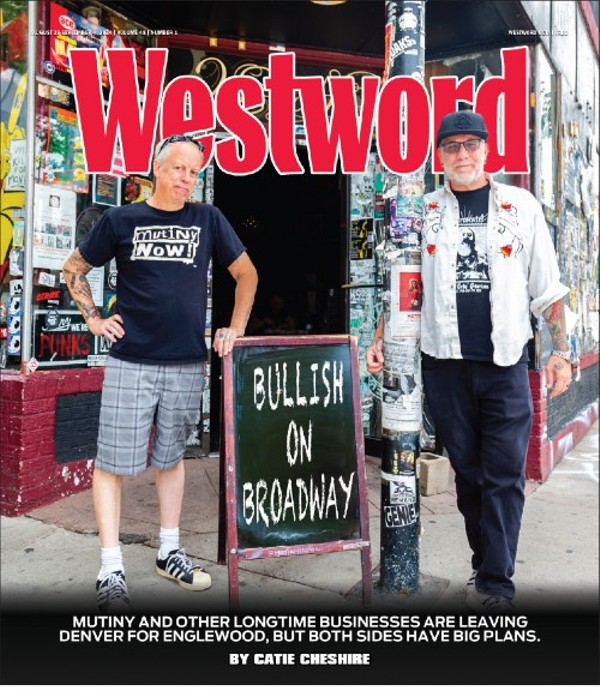Two and a half years after voters made Denver the first city to decriminalize psychedelic mushrooms, Denver City Council has started discussing ways to further decriminalize the fungi.
"I'm really excited about how Denver was the leader in our nation," Councilman Chris Hinds said during a November 9 Denver City Council Finance and Governance Committee hearing. "I am very interested in continuing to move forward if it makes sense — and based on all of the report recommendations, it does seem to make sense to me."
During the committee meeting, Kevin Matthews, president of the Psilocybin Mushroom Policy Review Panel — the group established by the city to study the effects of the decriminalization of personal use, possession and growth of psilocybin, the active ingredient in psychedelic mushrooms in Denver — presented a series of policy recommendations.
In particular, the panel is asking council to decriminalize the practice of gifting psychedelic mushrooms to other people and also decriminalize communal use of psilocybin. Matthews laid out several additional proposals, too, including setting up a public service campaign about responsible psilocybin use, training first responders regarding psilocybin, and encouraging the city to explore "how psilocybin therapy can be applied to address mental health issues in Denver."
"We can see from the arrests and the safety data and the use data that the sky has, in fact, not fallen with psilocybin decriminalization," said Matthews, who led the Denver decriminalization campaign.
In addition to Matthews, the panel includes Hinds, Denver District Attorney Beth McCann and Denver Police Department Investigations Division Chief Joe Montoya, among others. They've been meeting periodically over the past two years, and law enforcement officials and advocates agree that they've been working well together.
Since decriminalization in May 2019, there have been only five arrests in Denver for psilocybin alone, three of which were for amounts greater than for personal use, a classification that has not been quantified. "Arrests related to psilocybin decreased by more than half since the passage of I-301," the review panel's recent report notes.
This committee hearing marked the first time that Denver City Council members other than Hinds — who's said he might sponsor additional proposals — had discussed further psilocybin decriminalization. "I do want us to have a sincere conversation about other things than just the benefits," said Councilmember Robin Kniech. "I would just ask that we have to continue to talk about all forms of use — not just the spiritual and clinical use. We have to talk about that other type of use that is occurring when we talk about this panel."
In his response, Matthews noted that what may appear to many members of the public as recreational use can have very therapeutic benefits. "While we do understand that there certainly has, is, and will be recreational use with psilocybin mushrooms — and frankly, many other substances — we do feel that given the safety profile of psilocybin...hat both the city government and residents of the City and County of Denver can feel comfortable moving forward expanding the civil liberties of mushrooms," he added.
Kniech said that she'd like to see a public-health representative on the panel going forward, a suggestion echoed by Councilmember Debbie Ortega. "I just think that, as we have a committee and a panel that is missing the public-health voice, I just think that’s absolutely an essential part of the big picture conversation about this. I would just advocate for the same," Ortega said.
In a press conference outside the City and County Building after the meeting, Matthews said that it was "critically important" to add a public-health official to the panel going forward.
"What was the culminating psilocybin experience for me was certainly what, on the outside, looked like a recreational experience," he explained, expanding on what he'd said at the meeting. "And to be perfectly blunt, I was in Park Hill going for a walk with my friends in the middle of the night down to Mayfair Park, Crestmoor Park, and we had an incredible time. But I had no idea of the therapeutic potential of that experience, because in moments of rest and contemplating my whole experience, what was relayed to me and the lesson that I got was that, in fact, Kevin, you no longer have to be a victim to your diagnosis of major depression. And actually take steps in your own life right now, small incremental steps to change habits and start getting better. ... So that was incredible."
While Matthews and other decriminalization proponents are still determining whether they'll push for some sort of statewide decriminalization measure in 2022, they're also eyeing the possible decriminalization of other naturally occurring substances, known as entheogens, in Denver.
Since Denver voted to decriminalize psychedelic mushrooms, numerous municipalities across the U.S. have decriminalized entheogens, which include not only mushrooms, but also substances like ayahuasca and mescaline.
"Denver certainly has some catching up to do with the rest of the country," Matthews said. "I imagine a situation where it's not very equitable — if an individual is facing criminal penalties for psilocybin mushrooms while, on the other hand, an individual in Denver may face criminal penalties for the possession of ayahuasca or mescaline-containing cacti, for example. All of these substances, traditionally from the research, have very similar safety profiles. So it's worth a conversation."

Audio By Carbonatix
[
{
"name": "Air - MediumRectangle - Inline Content - Mobile Display Size",
"component": "12017618",
"insertPoint": "2",
"requiredCountToDisplay": "2",
"watchElement": ".fdn-content-body",
"astAdList": [
{
"adType": "rectangle",
"displayTargets": "mobile"
}
]
},{
"name": "Editor Picks",
"component": "17242653",
"insertPoint": "4",
"requiredCountToDisplay": "1",
"watchElement": ".fdn-content-body",
"astAdList": [
{
"adType": "rectangle",
"displayTargets": "desktop|tablet"
},{
"adType": "rectangle",
"displayTargets": "desktop|tablet|mobile"
}
]
},{
"name": "Inline Links",
"component": "18838239",
"insertPoint": "8th",
"startingPoint": 8,
"requiredCountToDisplay": "7",
"maxInsertions": 25
},{
"name": "Air - MediumRectangle - Combo - Inline Content",
"component": "17261320",
"insertPoint": "8th",
"startingPoint": 8,
"requiredCountToDisplay": "7",
"maxInsertions": 25,
"watchElement": ".fdn-content-body",
"astAdList": [
{
"adType": "rectangle",
"displayTargets": "desktop|tablet"
},{
"adType": "rectangle",
"displayTargets": "desktop|tablet|mobile"
}
]
},{
"name": "Inline Links",
"component": "18838239",
"insertPoint": "8th",
"startingPoint": 12,
"requiredCountToDisplay": "11",
"maxInsertions": 25
},{
"name": "Air - Leaderboard Tower - Combo - Inline Content",
"component": "17261321",
"insertPoint": "8th",
"startingPoint": 12,
"requiredCountToDisplay": "11",
"maxInsertions": 25,
"watchElement": ".fdn-content-body",
"astAdList": [
{
"adType": "leaderboardInlineContent",
"displayTargets": "desktop|tablet"
},{
"adType": "tower",
"displayTargets": "mobile"
}
]
}
]

